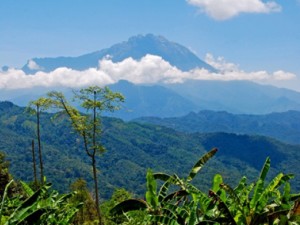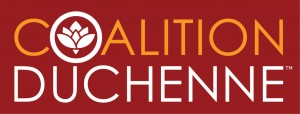GET INVOLVED
ABOUT COALITION DUCHENNE:
Dusty’s Trail: Summit of Borneo was made in association with Coalition Duchenne, a non-profit organization that raises global awareness and funding for Duchenne muscular dystrophy through donations and various annual fundraising events. Our commitment is that one hundred percent of all money raised by Coalition Duchenne goes directly to fund research. We are opportunistic but rigorous in our pursuit of research strategies. We operate with strong business principles and utilize the latest technology and software to leverage our efforts and maximize our efficiency.Our scientific advisors are world leaders in their fields. We have helped in the early stage development of some of the key research that is now paying dividends for sufferers of Duchenne today. Our funding of the Dusty Brandom Fellowship at the University of Western Australia led to groundbreaking exon skipping research. We were one of the first investors in small molecule screening. Duchenne research is advancing rapidly. We are currently pioneering funding of poloxamers and cardiac stem cells for Duchenne hearts. The impact of Duchenne is felt across the globe, from the USA to Asia, Australia, Europe, India, South American and Africa. Duchenne knows no boundaries, and does not discriminate between race, culture, socioeconomic status or country. Coalition Duchenne is committed to making a difference in the lives of all boys and young men with Duchenne. Our son Dusty, is one of them.
The MISSION of Coalition Duchenne is to raise global awareness for Duchenne muscular dystrophy, to fund research and to find a cure for Duchenne.
Our VISION is to change the outcome for boys and young men with Duchenne; to rapidly move forward to a new reality of longer, fulfilled lives, by funding the best opportunities for research and creating awareness.
GOALS
- To raise global awareness for Duchenne through events and media.
- To raise funds for research to cure Duchenne.
- To leverage our funding and accelerate research through relationships and innovative thinking.
- To acknowledge the boys and men across the world who suffer from Duchenne.
- To honor the boys and men who have lost their lives to Duchenne.
Visit the Coalition Duchenne website
ABOUT DUCHENNE:
Duchenne muscular dystrophy is a progressive muscle wasting disease. It is the most common fatal disease that affects children. It occurs in 1 in 3,500 male births, across all races, cultures and countries. It can happen to anyone. Duchenne is caused by a defect in the gene that codes for the protein dystrophin. Dystrophin is a vital protein that helps connect the muscle fiber to the cell membranes. Without dystrophin the muscle cells become unstable, are weakened and lose their functionality.
Some of the common signs and early symptoms of Duchenne are difficulty in walking, running and climbing. By the age of 6 -7 boys start to fall often and fatigue quickly. Their calf muscles appear large because they become fibrotic. Muscle weakness occurs in the lower extremities first.
By the age of 10-12, most boys are in a wheelchair. There is a continued deterioration of the shoulders, arms and hands. During the mid teens, boys may need help with eating. It is during this time that their back muscles become too weak to support their spine which results in scoliosis. Whilst some boys have rod surgery to straighten their spines, others suffer severe scoliosis.
During the late teens, respiratory weakness occurs in the diaphragm, as muscles that operate the lungs get weaker. Boys often require breathing assistance during the day and night, such as a ventilator or a permanent tracheotomy. Assistance is needed for coughing, and respiratory infections become life threatening. The heart is also involved, and some boys develop an early onset of cardiomyopathy which can lead to heart failure.
Life expectancy varies due to complications of the heart and lung functioning, and the type of gene deletion or duplication. The rate of progression and severity is different for each boy. The general span for life expectancy ranges from the mid teenage years to the mid 20’s.
There is no cure, although, in the last 10 years there have been major advances in science and in standards of care. With informed and timely treatment, some boys with Duchenne are living longer lives than ever before.
ABOUT EXPEDITION MT KINABALU:
 EXPEDITION MT KINABALU- Summit of Borneo -
August 16-18 2013.
EXPEDITION MT KINABALU- Summit of Borneo -
August 16-18 2013.
Coalition Duchenne is taking part in its third annual global event to raise awareness for Duchenne. We will climb South East Asia’s Mt Kinabalu, on the island of Borneo, in the Malaysian state of Sabah. An international team of 150 will climb for all the brave and courageous boys and young men around the world who face far greater challenges than any mountain peak, and to honor those who have lost their lives to Duchenne.
Please join an adventurous, upbeat team for Expedition Mt Kinabalu August 16-18, 2013 – Summit of Borneo!




